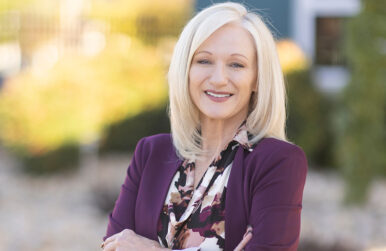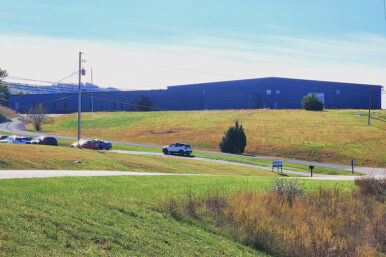Summary
- Fed cuts benchmark rate to about 3.9%, second cut this year.
- Move aims to spur hiring as inflation stays above target.
- Powell signals uncertainty about another cut in December.
- Data delays from government shutdown complicate Fed outlook.
WASHINGTON (AP) — The Federal Reserve cut its key interest rate Wednesday for a second time this year as it seeks to shore up economic growth and hiring even as inflation stays elevated.
“Job gains have slowed this year, and the unemployment rate has edged up but remained low through August,” the Fed said in a statement issued Wednesday. “More recent indicators are consistent with these developments.” The government hasn’t issued unemployment data after August because of the shutdown. The Fed is watching private-sector figures instead.
Wednesday’s decision brings the Fed’s key rate down to about 3.9%, from about 4.1%. The central bank had cranked its rate to roughly 5.3% in 2023 and 2024 to combat the biggest inflation spike in four decades. Lower rates could, over time, reduce borrowing costs for mortgages, auto loans, and credit cards, as well as for business loans.
The move comes amid a fraught time for the central bank, with hiring sluggish and yet inflation stuck above the Fed’s 2% target. Compounding its challenges, the central bank is navigating without the economic signposts it typically relies on from the government, including monthly reports on jobs, inflation and consumer spending, which have been suspended because of the government shutdown. The Fed has signaled it may reduce its key rate again in December but the data drought raises the uncertainty around its next moves.
The Fed typically raises its short term rate to combat inflation, while it cuts rates to encourage borrowing and spending and shore up hiring. Right now its two goals are in conflict, so it is reducing borrowing costs to support the job market, while still keeping rates high enough to avoid stimulating the economy so much that it worsens inflation.
Speaking to reporters after the Fed’s announced its rate decision, Fed chair Jerome Powell said there were “strongly differing views about how to proceed in December” at the policy meeting and a further reduction in rates is not “a foregone conclusion.”
On Wednesday, the Fed also said it would stop reducing the size of its massive securities holdings, which it accumulated during the pandemic and after the 2008-2009 Great Recession. The change, to take effect Dec. 1, could over time slightly reduce longer-term interest rates on things like mortgages but won’t have much impact on consumer borrowing costs.
The Fed purchased nearly $5 trillion of Treasury securities and mortgage-backed bonds from 2020 to 2022 to stabilize financial markets during the pandemic and keep longer-term interest rates low. The bond-buying lifted its securities holdings to $9 trillion.
In the past three years, however, the Fed has reduced its holdings to about $6.6 trillion. To shrink its holdings, the Fed lets securities mature without replacing them, reducing bank reserves. In recent months, however, the reductions appeared to disrupt money markets, threatening to push up shorter-term interest rates.
Two of the 12 officials who vote on the Fed’s rate decisions dissented, but in different directions. Fed governor Stephen Miran dissented for the second straight meeting in favor of a half-point cut. Miran was appointed by President Donald Trump just before the central bank’s last meeting in September.
Jeffrey Schmid, President of the Federal Reserve Bank of Kansas City, voted against the move because he preferred no change to the Fed’s rate. Schmid has previously expressed concern that inflation remains too high.
Trump has repeatedly attacked Powell for not reducing borrowing costs more quickly. In South Korea early Wednesday he repeated his criticisms of the Fed chair.
“He’s out of there in another couple of months,” Trump said. Powell’s term ends in May. On Monday, Treasury Secretary Scott Bessent confirmed the administration is considering five people to replace Powell, and will decide by the end of this year.
Meanwhile, the government shutdown has interrupted economic data. September’s jobs report, scheduled to be released three weeks ago, is still postponed. This month’s hiring figures, to be released Nov. 7, will likely be delayed and may be less comprehensive when they are finally released. And the White House said last week that October’s inflation report may never be issued at all.
The data drought raises risks for the Fed because it is widely expected to keep cutting rates in an effort to shore up growth and hiring. Yet should job gains pick up soon, the Fed may not detect the change. And if hiring rebounds after weak job gains during the summer, further rate cuts may not be justified.
Before the government shutdown cut off the flow of data Oct. 1, monthly hiring gains had weakened to an average of just 29,000 a month for the previous three months, according to the Labor Department’s data. The unemployment rate ticked up to a still-low 4.3% in August from 4.2% in July.
More recently, several large corporations have announced sweeping layoffs, including UPS, Amazon, and Target, which threatens to boost the unemployment rate if it continues.
Meanwhile, last week’s inflation report — released more than a week late because of the shutdown — showed that inflation remains elevated but isn’t accelerating and may not need higher interest rates to tame it.
The government’s first report on the economy’s growth in the July-September quarter was scheduled to be published on Thursday, but will be delayed, as will Friday’s report on consumer spending that also includes the Fed’s preferred inflation measure.
Fed officials say they are monitoring a range of other data, including some issued by the private sector, and don’t feel handicapped by the lack of government reports.



